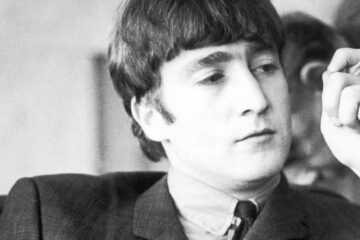The fervor with which Beatlemania took over the world has, ironically, caused some skeptics to doubt whether the Beatles were anything more than a schtick that caught fire at the exact right cultural moment—but to believe that would be a grave disservice to the songwriting skills of Paul McCartney, John Lennon, George Harrison, and yes, even Ringo Starr.
Although the Beatles might’ve started as a ragtag group of skiffle players in Liverpool, they went on to define an entire genre of rock ‘n’ roll. From psychedelic to doo-wop to heavy metal and more, the Fab Four possessed uncanny skills, both in their instrumental and songwriting prowess.
But for right now, we’ll focus on the Beatle who arguably had the most successful and long-lasting solo music career of all the Fab Four: Paul McCartney. Here are five of his best songs, all of which offer a different masterclass lesson in the art of songwriting.
“Yesterday”: Honor Even the Half-Formed Ideas
Starting our list of the best of Paul McCartney’s songwriting chops is a song he once credited as his favorite: “Yesterday.” Even aside from the instrumentation, wistful lyricism, or earworm melody, this iconic track offers an even more crucial lesson: any idea, no matter how half-formed, can become something huge.
Before McCartney came up with the final song title, he used “scrambled eggs” in place of “Yesterday.” Eventually, he replaced the lyrics with the ones we know today, but can you imagine what would have happened had he given up on his idea simply because he couldn’t think of the right words yet?
“Band on the Run”: Don’t Be Afraid to Piecemeal
“Band on the Run” came three years after the Beatles’ final release. Paul McCartney and Wings’ five-minute epic features three distinct parts that could easily stand alone as their own songs. Instead, McCartney incorporated each section into one another, almost like quilting together a song piece by piece.
The song garnered McCartney and Wings a Grammy Award for Best Pop Vocal Performance by a Duo, Group, or Chorus, proving that the best musical gems can come from a stream of consciousness. “It’s a good flow of words,” McCartney said of the song in Paul McCartney In His Own Words. “It’s a million things. I don’t like to analyze them. You name it, it’s there.”
“Blackbird”: A Social Anthem Doesn’t Need To Be Angry
As one of the most famous bands of the 1960s, there was little chance the Beatles would escape the decade without creating at least one social protest song. “Blackbird” was a fantastic example of Paul McCartney’s ability to interweave pressing social commentary with a timeless melody on vocals and guitar.
After watching the American civil rights conflict on the news, McCartney told GQ, “I just thought it would be really good if I could write something that if it ever reached any of the people going through those problems, it might give them a little bit of hope. So, I wrote “Blackbird.””
“Eleanor Rigby”: A Song Is No Different Than A Story
There’s an old songwriting adage that says, “Write what you know,” but where does fiction exist in this rule? “Eleanor Rigby” is a masterclass in the effectiveness of building an entire world of people from only one or two real-life characters. In this song’s case, loneliness was these characters’ connecting thread.
“I started this song about the lonely old lady who picks up the rice in the church who never really gets the dreams in her life,” McCartney explained to GQ. “Then, I added in the priest, the vicar, Father McKenzie. And so, there were just the two characters. It was like writing a short story, and it was basically on these old ladies that I had known as a kid.”
“Let ‘Em In”: Allow the Mundane to Inspire You
A doorbell chime or rap of knuckles on the door aren’t exactly musical enough to stir the soul, yet, these seemingly mundane sounds served as the basis for Wings’ No. 1 hit, “Let ‘Em In.” From the piano chords that follow the harmonic structure of the opening doorbell to the pulsing, knock-like bass drone, Paul McCartney expertly wove these sounds into a smash hit.
This creative approach to songwriting carries over into his lyrics, which feature Paul McCartney simply listing off the names of people he knows—Sister Suzy, brother John, etcetera. McCartney allowed the melody and rhythm of this song to elevate it to a new level of artistry that some musicians who try a lot harder could only dream of obtaining.



